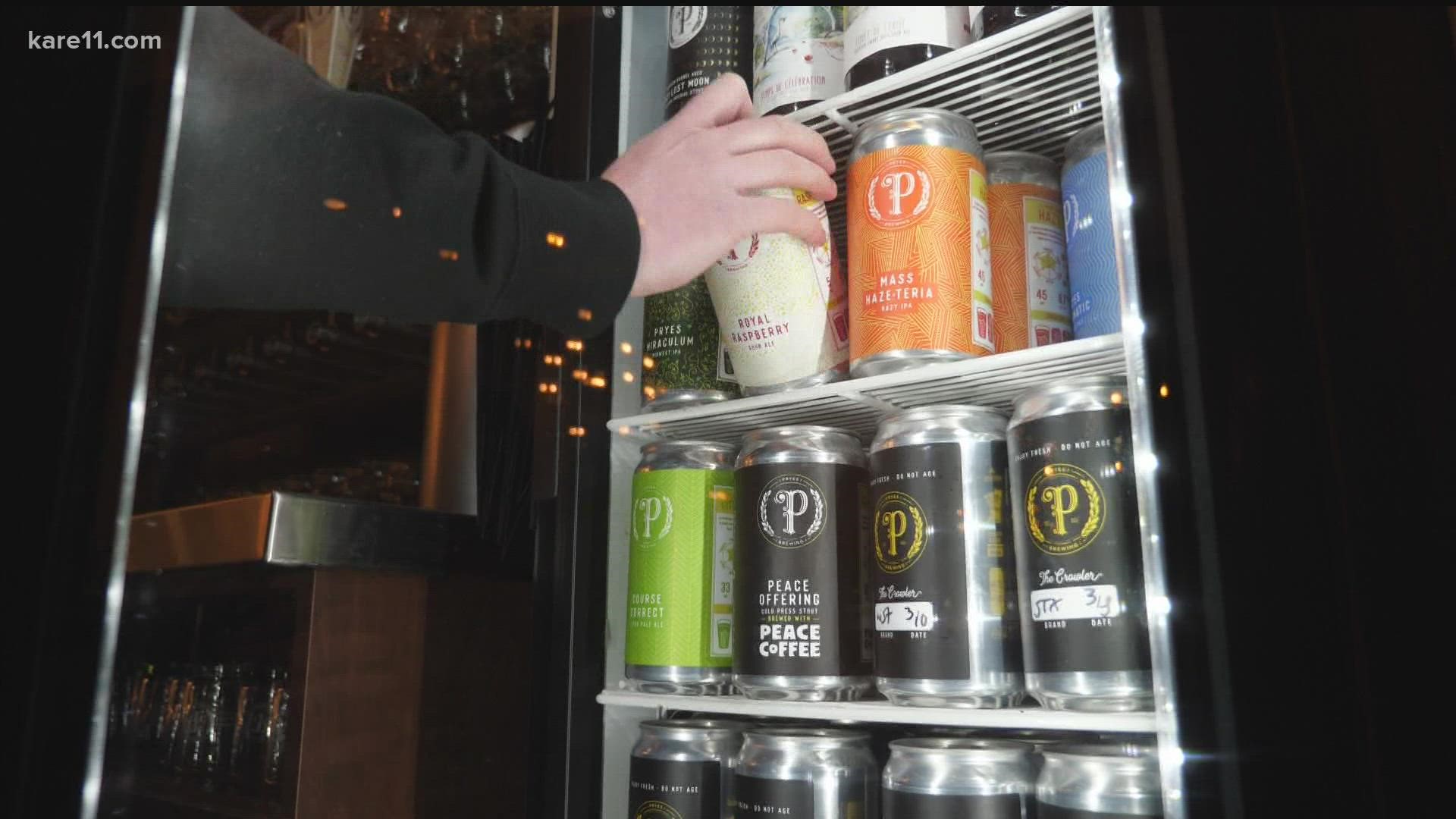MINNEAPOLIS — As cases of COVID-19 continue to subside, so do the cases of canned beers from some of your favorite local craft breweries.
"The can shortage is a lingering effect of the pandemic. In fact many people are calling it the 'candemic', said Dan Schwarz, Co-founder and CEO of Lift Bridge Brewing Company in Stillwater.
Increased demand, not just for canned beers but also for things like canned seltzers, soft drinks and sparkling waters, has placed a strain on the aluminum supply chain.
"Can suppliers are still trying to catch up," said Schwarz.
Forcing smaller brew spots like Lift Bridge to shell out big bucks to box up.
"Lift Bridge saw a 27% price increase at the start of June for cans," explained Schwarz. "Can suppliers are now requiring, instead of a minimum order of one truck load, it's now a minimum of five truck loads, so that's over a million cans you need to order and store in order to package in cans."
While some local breweries have been struggling to find cans, others have been fortunate enough to be prepared for this moment for quite sometime.
Bigger microbreweries like Pryes Brewing Company in Minneapolis is one of them.
"We've been fortunate enough through a lot of planning and forecasting that we haven't suffered from the actual running out issues," said Alex Jacoby, purchasing manager for Pryes. "It's caused us to outlay a lot of cash to bring product in early."
From pricing to availability, many local breweries are finding ways to adapt.
"We're going to release new beer called supply chain issues and lean into it and relabel some of the existing cans that we don't have beer for anymore," said Schwarz.
It's about capitalizing on new ideas to keep the beer and business flowing.
"If we cant get cans, we can't put beer in it, we can't sell it, so it is really a danger to many breweries if we're not able to get our beer out to consumers," said Schwarz.
Forecasters in the aluminum can industry say the demand for cans is expected to continue for the next two to three years as more companies aim to provide more sustainable options for consumers.
In a statement from Ball, the world's largest maker of aluminum beverage packaging, a spokesperson says:
"Ball continues to work with our customers to minimize short-term impacts by distributing cans from our global plant network, as well as continuing to improve the efficiency and production of our existing aluminum can, bottle and end lines. To support long-term domestic can growth, we are aggressively expanding our U.S. can manufacturing production by installing two new lines in existing facilities (which are now running at speed), and building five state of the art plants that together represent more than $1 billion of investment.
Aluminum is infinitely recyclable (75% of aluminum ever produced is still in use today) and it has the highest recycling rates of any packaging substrate. As the packaging waste crisis mounts, consumers are seeking sustainable options like cans and beverage brands and canmakers are responding accordingly."

